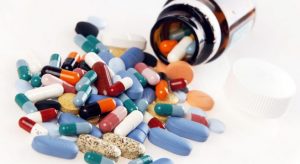GS1 Philippines fights fake medicine
ADOPTION of barcode technology could help the Philippines fight counterfeit medicines and medical supplies, an advocacy group said on Wednesday following the country’s inclusion in a US watchlist for pharmaceutical crimes. “By leveraging barcode technology, we can establish a cohesive integration of global standards that prioritizes patient safety, particularly in regions facing serious challenges with […]

ADOPTION of barcode technology could help the Philippines fight counterfeit medicines and medical supplies, an advocacy group said on Wednesday following the country’s inclusion in a US watchlist for pharmaceutical crimes.
“By leveraging barcode technology, we can establish a cohesive integration of global standards that prioritizes patient safety, particularly in regions facing serious challenges with counterfeit products,” said Roberto “Bobby” S. Claudio, president of GS1 Philippines.
The United States Trade Representative named the Philippines as one of the leading sources of counterfeit medicines distributed worldwide.
It also cited the country in its US piracy watchlist for growing concerns about the manufacture and distribution of counterfeit pharmaceutical products.
In response, GS1 Philippines has been implementing Global Trade Item Numbers (GTINs). This standardizes labeling and tracking systems, streamlines the management of medicines and supplies, and improves the supply chain.
GS1 Philippines said GTINs improve product identification and verification as it can capture the date of manufacture, expiration date, and the name of manufacturer.
The group said it is also committed to preparing local industries for the global shift to 2D barcodes by 2027, aligning with international standards and enhancing the country’s competitiveness.
The 2D barcodes, including QR codes, ensure accurate brand information and better supply chain management. — Aubrey Rose A. Inosante












